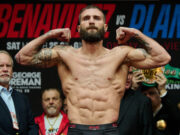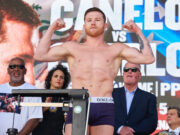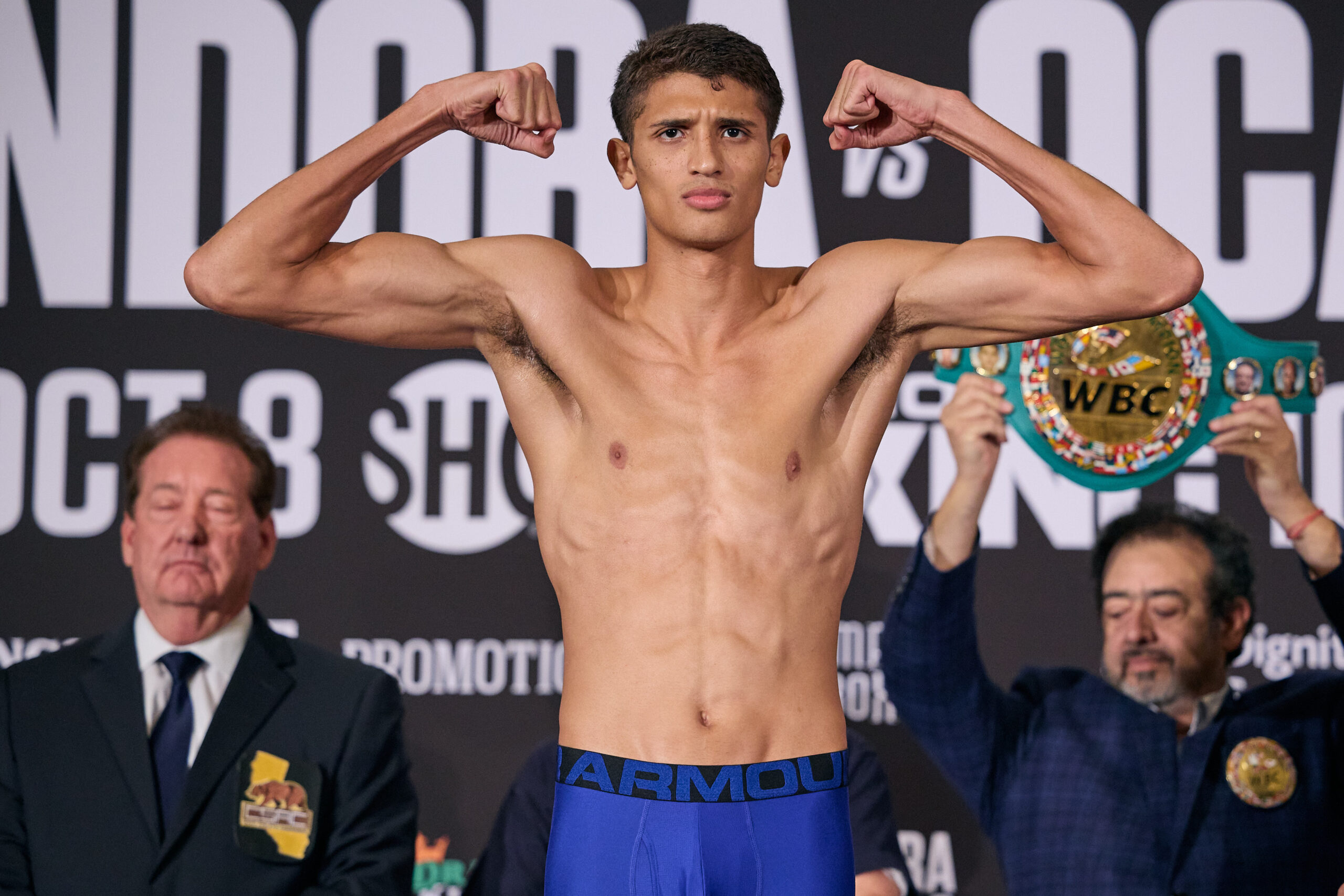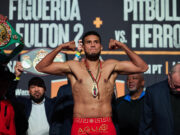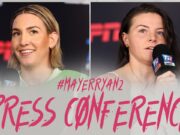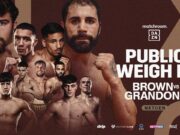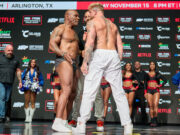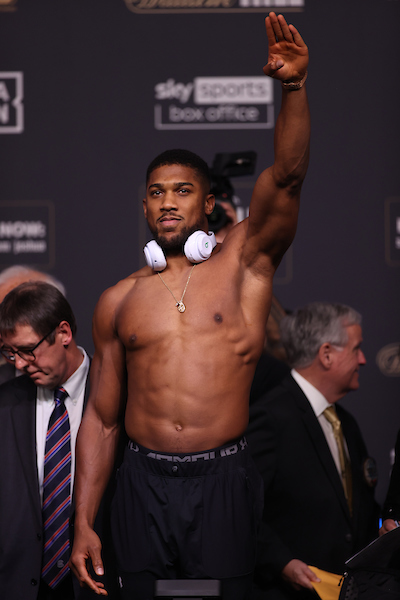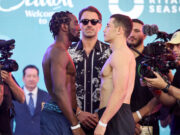Conference calls are a necessary task, perhaps, which also means they are often stuck between ho-hum and hum-drum on the interest meter. But then along comes Teddy Atlas. This Atlas doesn’t just shrug when asked a question. Word-for-word – and there were a lot of them Wednesday, Atlas knocked out the mundane with insight, a little schtick, genuine opinion and some real news.
Listening to Atlas from Alexander Povetkin’s camp in Russia made me think of Emanuel Steward when he is talking about Wladimir Klitschko or Miguel Cotto. Both are terrific commentators, Atlas for ESPN2’s Friday Night Fights and Steward for Home Box Office. But I find myself listening more attentively when they are back in a corner, back where they belong. Talk is like that old line about opinions. You know it. I’m sitting on one as I write this. Everybody has one. But few, very few, have the instinct, or patience, or smarts, or guts to be a real trainer.
The sport, I think, suffers when an Atlas or Steward spends more time behind a microphone than in a corner. I understand why they do it. The money is good. The headaches and hangers-on aren’t there in the maddening abundance that has to make them feel more like a circus-master than a teacher.
“The main difference is nobody can talk back to me on the microphone,’’ Atlas joked as he discussed Povetkin’s chances Saturday at the World Boxing Association’s vacant heavyweight title against Ruslan Chagaev in an EPIX-telecast fight from Germany. “I kind of like that.’’
Another thing to like is the absence of a commitment to a fighter and all of the complex emotions attached to it. There’s no risk.
“You don’t have to worry about who wins,’’ Atlas said. “Now, I’m in a position where, unfortunately, I do have to worry.’’
But the potential reward in victory and even in the process is huge. It’s also something that the rest of us don’t experience, or even attempt. It’s a lot safer to just comment and move on, insulated and anonymous.
It’s fair to guess that Atlas, like Steward, is back in a corner because that risk is there. They need it to stay sharp and credible for that microphone. But I’m also guessing they are lured back just because they love their craft, which starts with teaching. True teachers are hard to find. They may leave for a while to consult or commentate. But the best ones always complete the circle, finding their way back to a classroom or a corner.
Atlas touched on it when explaining his reasons for working with Povetkin under less than optimal circumstances, including a camp that lasted only 33 days.
“The thing I love is being in the gym teaching, being in the gym where nobody bothers you and you’re able to get into a kid,’’ Atlas said “You’re able to get his full, undivided attention, his belief, his trust and you’re able to improve that kid. You’re able to get him to think things he might not have thought and get him to try things he might not have tried.
“… I mean almost like — without being too ridiculous — almost like a parent. You’re watching your kid develop a little bit and that part is still beautiful and it’s pure. It’s the essence of boxing, watching somebody get better, watching somebody become more complete as a fighter, even as a person. They’re more sure of themselves.
“That’s still great. I just wish that could be bottled and there could be a fence put around it and all of the other stuff could be kept out. But you know what? That doesn’t happen because you’re dealing with life and you’re dealing with all of the other things that will come with anything.’’
Some of those things intruded on the game’s essence this time around. Atlas had announced on ESPN that he wouldn’t be with Povetkin because of a disagreement over where he would train. Because of his ESPN commitments, Atlas wanted him in New Jersey. But Povetkin, or at least people in his camp, decided to stay close to home. Atlas was mystified and more than a little frustrated.
“I told them to get their ass over here,’’ said Atlas, who said Povetkin wasn’t in the best condition when he arrived in Russia.
Atlas said that he even had the agreement written into his contract with Povetkin.
“I mean I did ask: ‘Why aren’t you keeping your commitment?’ ‘’ Atlas said. “I did say: ‘You had a commitment to come over here. We agreed to it. We even put it in the contract.’ ”
Bottom line: Atlas could have stayed at home, stayed within the comfort zone behind that microphone. But he didn’t, all because of the student, Povetkin, who looked as if he might have to fight for a title without a real trainer there to guide him.
“They called me up and said the press was asking: ‘Who is your trainer, who is your trainer?’ ‘’ Atlas said. “Nobody was answering except Povetkin and Povetkin said, ‘My trainer is only one person, Teddy Atlas.’ ‘’
Atlas realized that, for whatever reason or agenda, the fighter wasn’t getting all the information he needed from those around him.
“You didn’t have to be Columbo to figure that out,’’ he said.
In the end, the teacher couldn’t abandon the student in need, even if a contract said he could. Here was a fighter, he said, facing his biggest moment to date, yet his advisors had made no arrangements for another trainer.
“They called me up and said the press was asking: ‘Who is your trainer, who is your trainer?’ ‘’ Atlas said. “Nobody was answering except Povetkin and Povetkin said: ‘My trainer is only one person, Teddy Atlas.’
“Right there when I heard that, it just affected me from a human standpoint.’’
When Atlas boarded his flight for Russia, he began to think about the abbreviated camp. He even began to think like a pilot perilously low on fuel.
“I felt like I was throwing chairs and things we didn’t need out of the plane to make the flight lighter,’’ he said of adjustments brought on by a lack of time. “I mean there were days I had to make choices. No bag work today; I couldn’t do this work today.’’
Without a full eight weeks, Atlas has misgivings.
“It’s frightening to me because I’m in the chair of responsibility now,’’ he said. “I have made that choice, so at this point, I’m going to do everything I can to represent myself and this kid the best I can.
“I’ve been to church more than I normally go.’’
Say a prayer. Povetkin might not have one this time around. Later on, he could if Atlas continues to sit in that risky chair. He can already talk with the best of them. The conference call’s transcript is proof of that. But the best of them can’t train, not the way he can.
QUOTES, ANECDOTES
· Alfonso Gomez isn’t given much of a chance against Mexican star Saul “Canelo’’ Alvarez on Sept. 17 at Los Angeles’ Staples Center on the same night that Victor Ortiz faces Floyd Mayweather Jr. at Las Vegas’ MGM Grand. In pursuit of is first world title, but Gomez wouldn’t have it any other way. “My first try was against Miguel Cotto,’’ said Gomez, who was stopped by the Puerto Rican in 2008. This is another try against another superstar, Canelo. To get a world title, there are other ways to do it against lesser guys.’’
· An early yardstick of who is bigger in Mexico, Canelo or Julio Cesar Chavez Jr., will come on Sept.17. Chavez fights Ronald Hearns in Culiacan on the same night. The unflappable Canelo doesn’t care. “He has his fans; I have my fans,’’ Canelo said Wednesday in a conference call.’’
AZ NOTES
· Another promoter is helping to resurrect the Phoenix market, moribund for the last few years. Promoter Alma Canez has scheduled eight-to-nine fights for a card featuring young, local fighters for Friday, Sept. 2nd at the El Zaribah Auditorium. Popular bantamweight Alexis Santiago faces Steve Johnson in a six-rounder.
· Fifteen days later on Sept. 17, 19-year-old junior-welterweight prospect Jose Benavidez Jr., the face of Arizona’s re-emerging market, goes back to work in Parker at BlueWater Resort & Casino. It will be Benavidez’ second successive fight in his home state since controversy over the Arizona immigration law, SB1070, kept him on the road.


